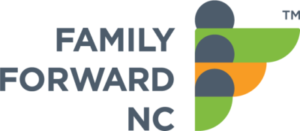A Health Flexible Spending Account (FSA) is a pre-tax benefit account in which employees put money into that can be used to pay for certain out-of-pocket health care costs, tax-free. A Dependent Care Flexible Spending Account (DCFSA) or dependent care reimbursement account, is a pretax benefit account used to pay for eligible dependent care services, such as child care, preschool, and before or after school programs.
Benefits to Employers
- Increases productivity
- Reduces payroll taxes
- Improves recruitment
- Increases retention, reducing turnover costs
- Eases administration
- Improves morale
Benefits to Children
- Improves health, through increased access to health care, including primary care, dental care, needed healthcare services, mental health care, prescriptions, preventive care, treatment for chronic conditions, prenatal care (for mothers)
- Improves education and cognitive development by making child care more affordable
Benefits to Parents/Families
- Improves health, through increased access to health care, including greater access to primary care, preventive screenings, ambulatory care, prescription medications, and chronic disease care; greater medication adherence; and higher rates of diagnosis
- Reduces stress
- Improves work/life balance
- Reduces depression
- Improves self-reported health
- Improves family economic security
Range of Practices in the United States
Forty percent of all workers have access to an FSA. But only 11 percent of workers in the lowest income bracket have access to an account, whereas 70 percent of workers in the highest income bracket do.
According to the Bureau of Labor Statistics, 41 percent of all workers have access to a dependent care reimbursement account. But that includes only 13 percent of workers in the lowest 10 percent wage category, compared to 66 percent of workers in the highest wage category.
Per federal law, employees can contribute up to $5,000 to dependent care accounts. Currently, employees can contribute up to $2,650 for health flexible spending accounts; however, the number is expected to increase to $2,700 for 2019.
